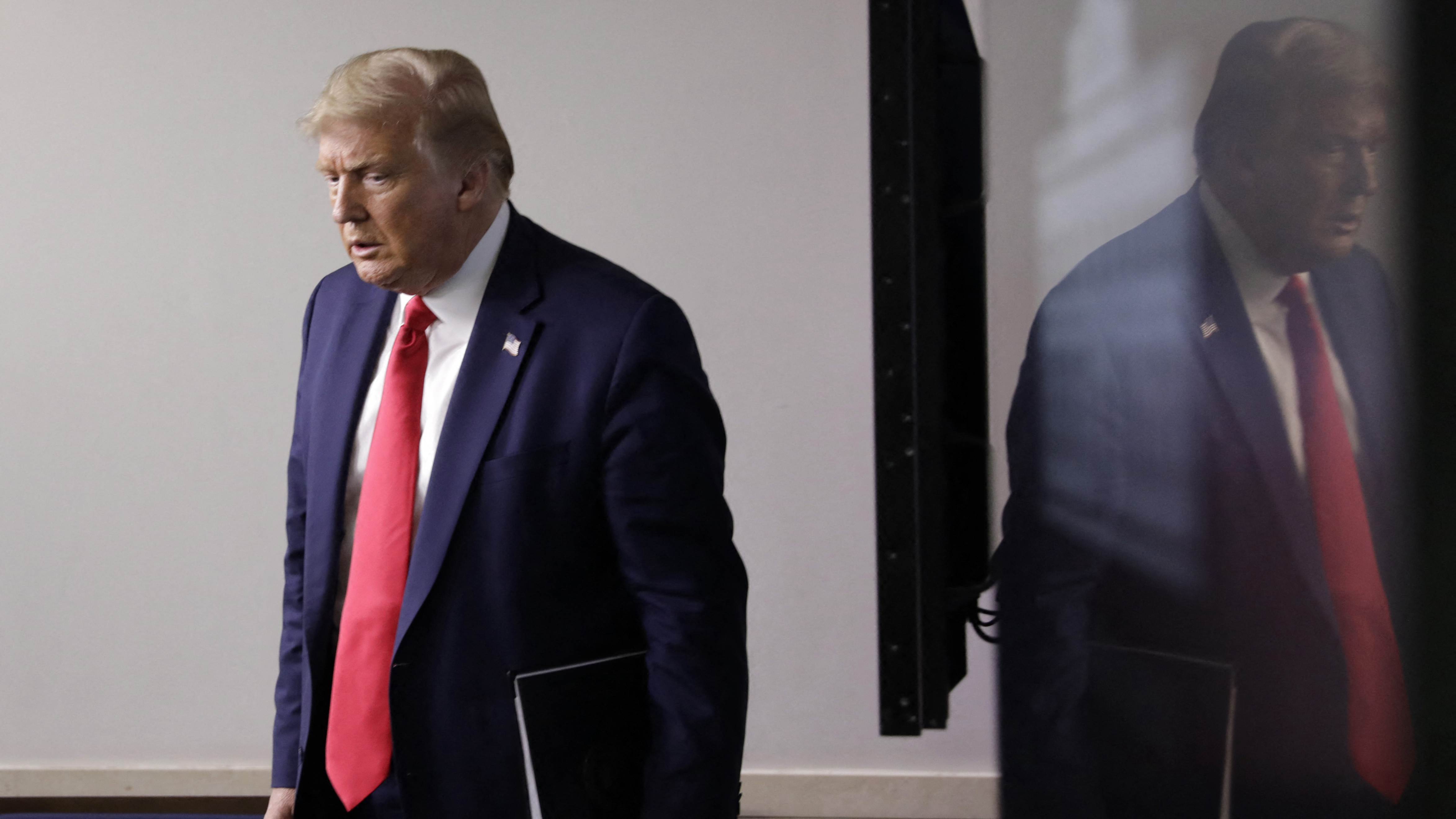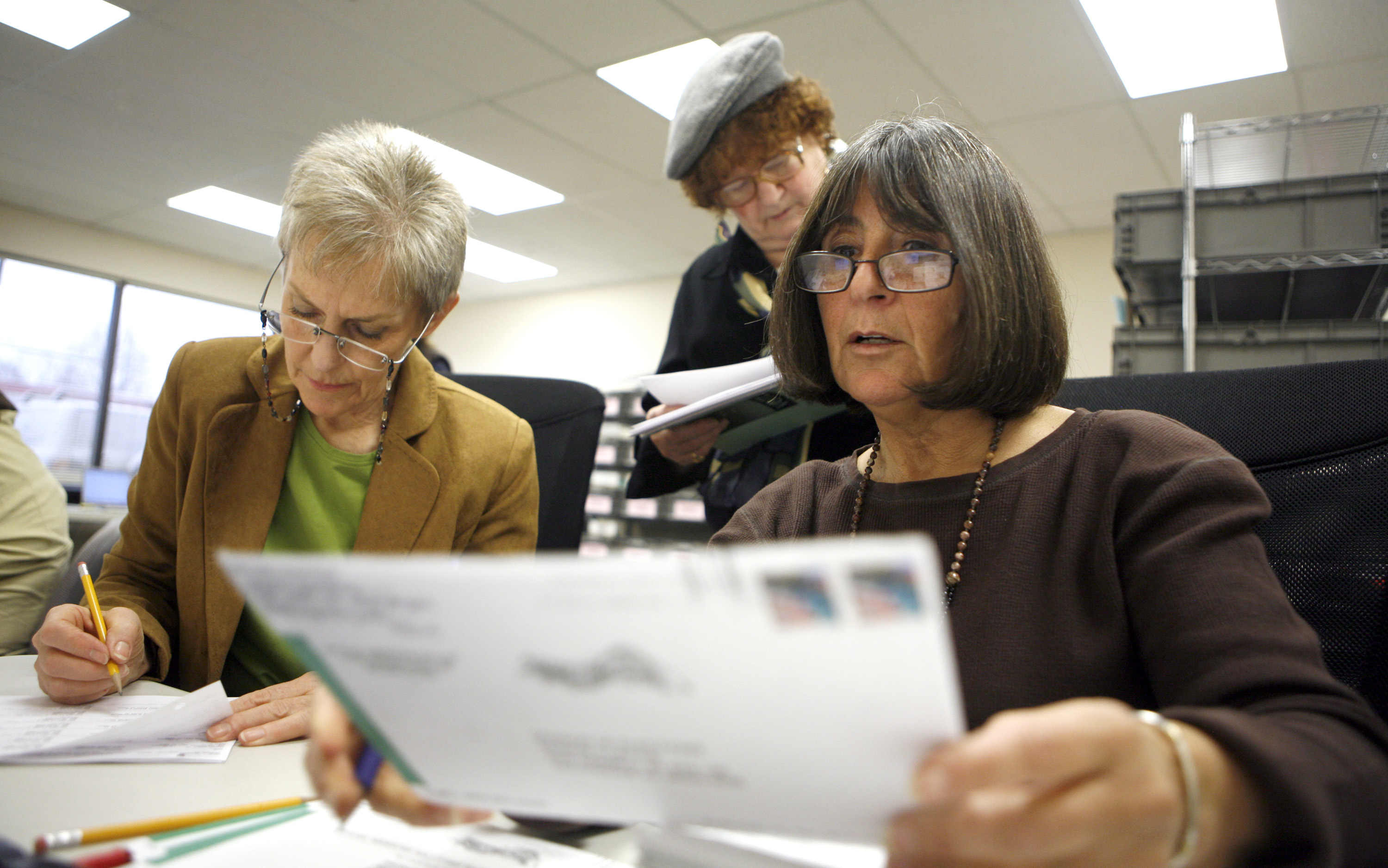
U.S. President Donald Trump arrives at a news conference at the White House in Washington, July 23, 2020. /AP
U.S. President Donald Trump arrives at a news conference at the White House in Washington, July 23, 2020. /AP
Editor's note: David Stasavage is Dean for the Social Sciences at New York University and author of "The Decline and Rise of Democracy: A Global History from Antiquity to Today" (Princeton University Press 2020). The article reflects the author's opinions, and not necessarily the views of CGTN.
As the United States heads toward its most significant and contentious presidential election in a very long time, there is much talk about voting by mail.
Some see this option as necessary to ensure ballot access for all amid the COVID-19 pandemic, particularly blue-collar workers and minority groups, who have disproportionately high infection rates. But others, including President Donald Trump, vociferously oppose mail-in ballots, pointing to a purported risk of fraud.
Their argument is bogus – and not exactly new. For the last six centuries, those seeking to limit the franchise have sought to achieve their goals by citing the need to maintain the "integrity" of the electoral system.
Consider England in the early fifteenth century. At that time, each English county sent two "knights of the shire" as representatives to Parliament. And because there was no formal law governing how these knights (a largely honorific term) would be selected, it fell to each county's sheriff to organize an election.
By custom, all free male inhabitants of a county had the right to participate, while women were excluded. Some of these elections were no doubt rowdy and undisciplined – as democracy often is – but they allowed for much greater (male) participation than would soon be the case.
In 1429, members of the House of Commons petitioned King Henry VI to agree to a new law ostensibly intended to ensure that county elections to Parliament proceeded peacefully. The petition stated that without this new law, "homicides, riots, assaults, and divisions will most probably arise and occur." In other words, the law's backers claimed, the integrity of the electoral process was in danger.
But the parliamentarians' proposed method of addressing the perceived problem betrayed their true motivation. They called for the county election franchise to be restricted to those who owned land with an annual return of at least 40 shillings, a significant sum at the time.
The root cause of the problem, as the law's supporters saw it, was "the too great and excessive numbers of people" who had been participating in elections. The 40-shilling rule became law in England in 1430, and would not be repealed until Parliament passed the Great Reform Act of 1832.
With that act, Parliament had finally come around to the idea that the 40-shilling rule was an anachronism. But then a new twist to the story brought about a feature of voting that we view as sacred today.

Division of Election workers validate mail-in ballots at the Office of Elections in Anchorage, Alaska, November 14, 2008. /AP
Division of Election workers validate mail-in ballots at the Office of Elections in Anchorage, Alaska, November 14, 2008. /AP
Some members of Parliament advocated not only expanding the franchise, but also making the ballot for elections to the House of Commons secret. Since time immemorial, voting in county elections had taken place in public, enabling people with means to intimidate or bribe others to vote as instructed.
But it would be another 40 years before Parliament finally adopted the 1872 Ballot Act. One of the main reasons for the delay in introducing secret balloting was that opponents argued – once again – that it would jeopardize the integrity of the electoral process.
Some MPs had proposed a secret ballot as early as 1830, but others argued then that such a measure would result in "eternal suspicion and hypocrisy." In 1862, another opponent of secret ballots said much the same thing, claiming that, "instead of being a check on bribery, it would facilitate it by preventing detection in many cases."
Sadly, such arguments are being echoed today in the U.S., which has entered a new era of voting restrictions that recalls its past disenfranchisement of African-Americans. In recent years, 25 U.S. states have passed laws that make it more difficult to vote, such as by requiring a photo ID or even proof of citizenship. States have also limited turnout by reducing the number of polling stations.
The clear effect of these measures is to tilt the playing field against low-income and minority groups. Much like in England 600 years ago, the stated objective – preserving the integrity of the electoral process – is just a convenient smokescreen.
In the U.S. debate over voting by mail – a measure supported by a large majority of American adults – opponents of broad electoral participation are once again raising the specter of fraud and corruption to pursue narrow partisan goals. Without citing any evidence, they claim that this new voting system is somehow subject to greater irregularities than traditional in-person voting.
But the real fear of Trump and others is that mail-in voting will boost turnout and aid Democratic candidates, even though it is not even certain that such an effect exists in states that already allow it. We can only hope that the advocates of expanded suffrage will eventually resume their winning streak.
Copyright: Project Syndicate, 2020.
(If you want to contribute and have specific expertise, please contact us at opinions@cgtn.com.)